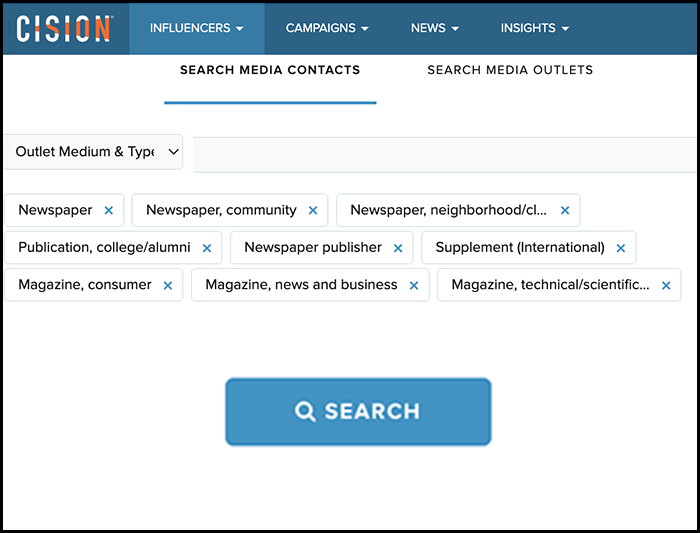
Is your boss unbearably reactive? Or is your team disengaged? If so, there’s a good chance emotional intelligence — or EQ — is the missing ingredient.
EQ encompasses skills in self-awareness, self-management, empathy, and relationship building. These skills are essential for leaders who want to connect with and inspire others. And while traditional intelligence (IQ) can plateau, the beauty of EQ is that it can be cultivated and refined throughout your career.
In this video — “12 traits emotionally intelligent people share (You can learn them)” — Daniel Goleman, author of “Leadership: The Power of Emotional Intelligence,” dives into the four domains of EQ, explaining how each contributes to effective leadership and a thriving workplace culture. Understanding and developing these four domains can fundamentally shift how leaders interact with their teams, helping them to be more productive and aligned with organizational goals.
Understanding the Four Domains of Emotional Intelligence
- Self-Awareness: This foundational skill involves understanding your emotions, thoughts and impulses and how they influence your actions. Goleman explains, “People who are high in self-awareness are able to develop excellence across the board.” Self-awareness is critical to EQ, enabling leaders to respond thoughtfully rather than react impulsively.
- Self-Management: Leaders who can manage their emotions — especially in high-stress situations — build resilience and inspire trust. Self-management includes staying calm under pressure, a skill Goleman describes as increasingly valuable. “Road rage, people blowing up… there’s a growing need for people to improve in this ability,” he says in the video.
- Social Awareness: This focuses on empathy — understanding others’ perspectives and emotions. Social awareness is the ability to pick up on social cues and respond to them sensitively, which helps leaders connect on a deeper level with their teams.
- Relationship Management: The art of building meaningful, effective relationships is the final domain. This skill includes handling conflict constructively, inspiring others, and leading by example. It’s important to handle interactions with integrity.
Why EQ Matters in Leadership
Goleman argues that EQ becomes more relevant as you advance in your career. While IQ and cognitive ability can help you secure a role, EQ is what differentiates outstanding leaders.
“Once you’re in [your profession of choice], everybody else is about as smart as you are. That’s where emotional intelligence kicks in,” he says.
Leaders with high EQ create a work environment where employees feel respected, valued and motivated to do their best work. This obviously reduces employee turnover and contributes to the organization’s overall bottom line.
This focus on EQ resonates in today’s business world, where companies increasingly recognize that a thriving workplace culture drives productivity and engagement. Organizations with emotionally intelligent leaders see a direct impact on their corporate culture. As Goleman notes, “Emotions are contagious… If the leader is in a positive mood, then people catch that positive mood and their performance as a team or group goes up.”
Real-World Consequences of Low EQ
On the flip side, low EQ in leadership can erode trust, drain morale, and (as just mentioned) lead to high turnover. Goleman describes a “leader you hate” as someone who “lacks empathy, doesn’t tune in, and doesn’t understand how clueless they are.” These leaders often leave employees feeling undervalued, unmotivated, and quick to seek opportunities elsewhere.
I can relate. I’ve encountered such leaders in my own career.
Consider the case of a well-known executive whose high-pressure tactics led to quick results but ultimately caused severe burnout and high employee turnover. Goleman’s research at the Yale School of Management shows that leaders who fail to manage their emotions and create positive team dynamics may appear successful in the short term, but they’re ultimately undermining the organization’s long-term health.
Those with a high EQ keep the end in mind and have a long-term vision.
EQ in Action: Transformative Stories
The power of EQ is evident in Goleman’s story of Govin Brown, a New York City bus driver who transformed his passengers’ experiences. I love this story!
Goleman recalls after boarding Brown’s bus, “He looked at me and very warmly said, ‘Welcome to the bus. How’s your day going?’”
Brown’s genuine engagement transformed the energy on the bus, making passengers feel noticed and valued. This is a small but potent example of how empathy and positive social interactions can have a lasting effect.
“Emotional intelligence is a human ability that will always remain so,” says Goleman. His story of the bus driver demonstrates that regardless of the role, people with high EQ can inspire loyalty, joy, and productivity. In his 20 years as a bus driver, Brown never received a single complaint. In fact, people would wait just to have the opportunity to ride his bus.
For leaders, cultivating a similar approach can have transformative results on workplace morale and organizational loyalty.
Building EQ Skills: Practical Tips for Leaders
If you’re ready to improve your EQ, Goleman recommends starting with empathy, particularly by listening actively.
“We think about what we want to say, and we don’t really listen to the other person,” he explains. Listening well is a fundamental aspect of empathy, and though it might initially feel unnatural, consistent practice can turn it into a valuable habit.
Before we moved from Arizona, Leticia and I enrolled in improv classes for about a year. The very first skill the instructors drilled into us was listening. (And I can attest that I’m a better husband now since refining that skill!)
To make sustainable changes, Goleman advises taking a neuroplasticity approach. Just as habits form through repeated action, EQ skills can be strengthened over time. He shares an exercise: Cross your arms, then try crossing them the opposite way. It feels uncomfortable at first, just like changing any habit, but practice eventually makes it second nature. So too with EQ — building new ways of relating takes time, but the benefits are profound.
The Business Benefits of High EQ
Organizations that prioritize EQ among their executive teams, managers, and other leaders consistently report more engaged employees, less turnover, and higher productivity. Since all of these contribute directly to profitability of an organization, why isn’t everyone doing it? Good question.
Employees who are led by high-EQ leaders are more likely to find fulfillment in their work and to thrive. This underscores the critical role EQ plays in not only individual success but also collective organizational well-being.
For companies, investing in emotional intelligence training and development for leaders can be a game-changer. A high-EQ team fosters an environment of trust and collaboration, resulting in higher employee retention and greater overall satisfaction. This focus on EQ is an investment that pays off by fostering a culture where employees feel respected and motivated to contribute.
Happy employees = a happy company = a more profitable company.
Embracing EQ for Long-Term Leadership Success
In an age where AI and automation are reshaping industries, emotional intelligence remains a uniquely human skill that is increasingly valued and it’s better understood. Goleman, who champions EQ as an essential skill for personal and professional success, believes a world with more EQ would be a kinder, more connected place.
Wouldn’t THAT be nice? (Especially during our U.S. presidential elections!)
“The more emotional intelligence in society, the better,” he says. “I think we would have parents who are more effective, we’d have more compassion for each other.”
This vision of a more emotionally intelligent society begins with each of us. Developing EQ skills can be a transformative journey, enabling us to connect more authentically with others and to lead in a way that inspires loyalty and respect.
For leaders, EQ is not merely a soft skill but a cornerstone of effective, ethical leadership.
If you’re ready to improve your EQ, consider starting with your personal EQ evaluation using Goleman’s four domains. Remember, EQ isn’t a one and done skill; it’s a learnable skill that, when better mastered, can enhance your relationships and career at any stage.
Embrace EQ, and you’ll be better equipped to lead your team to success.
Looking for coaching on how to be a more authentic, compassionate and inspiring leader? Contact us.

Jeffery E. Pizzino, APR is a spin-free public relations pro who is passionate about telling the why of your story with clarity, impact and authenticity. He began his PR career in 1987 at Ketchum Public Relations in New York City but has spent the majority of his career as a solopreneur. He’s AuthenticityPR’s Chief Authentic Officer and also functions as the fractional CCO for technology startup Converus.
Jeff has an MBA in Management from Western International University and a Bachelor of Arts degree in Communications — with an emphasis in PR — from Brigham Young University. He’s a native of Milwaukee, Wisconsin, but also holds an Italian citizenship. Jeff and his storyteller wife Leticia have four children and four grandchildren. In his extremely limited nonwork hours, he studies italiano, practices guitar, gardens, disc golfs, reads, listens to New Wave music, serves in his church, watches BYU football, and plays Dominion and Seven Wonders. Email Jeff.

